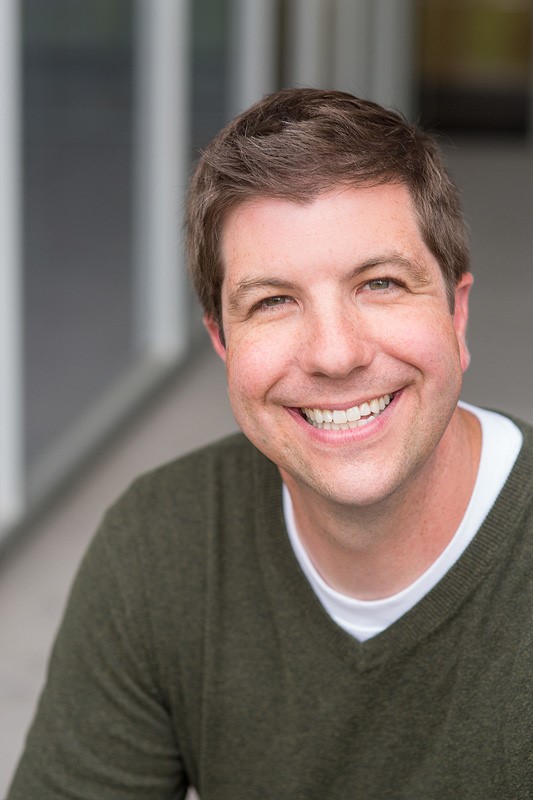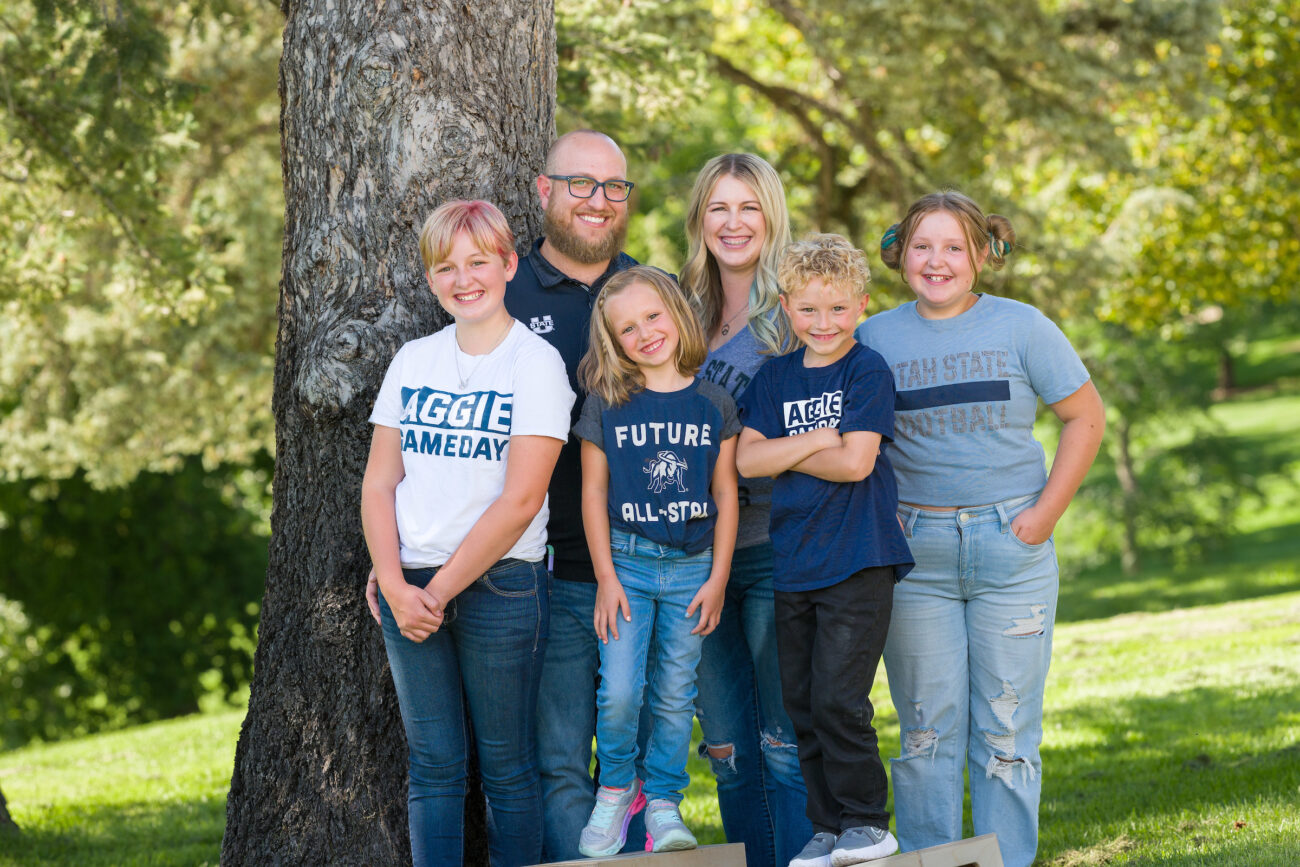When Medicine Is Sick
Medical school nearly broke Kyle Bradford Jones.
Throughout his residency training, Jones ‘05 was caught between the conflicting pressures modern medicine espouses: be fast but thorough with patient exams, prescribe tests but not overly so, be compassionate but work 30 hour shifts without sleep, and most importantly, beat death—an impossible goal. Working in extremes exacerbated Jones’s depression and general anxiety disorder, a diagnosis made while he was an undergraduate at Utah State University. It also highlighted problems given short shrift in discussions about healthcare today. Doctors are twice as likely to commit suicide than the general population but punished by employers for seeking help for mental health issues. A 2020 study found that more than 40 percent of physicians reported experiencing burnout. In his book Fallible: A Memoir of a Young Physician’s Struggle With Mental Illness, Jones says that while in residency he became a walking metaphor for the broken healthcare industry, writing “I was the hospital.” What do we do when medicine is sick? – km
The following is a conversation between Kristen Munson and Dr. Kyle Bradford Jones.
KM: Physicians who experience untreated mental illness and substance abuse issues that left untreated may put patients at risk. And yet, in some states, there appears to be risk for physicians to step forward and get the treatment they need without losing their licensing. How do we fix this?
KJ: In the last few years there have been efforts by medical groups to change the wording of the licensing questions. Currently a lot of states will say things like “have you ever suffered from a mental illness or addiction?” rather than something like “do you currently have any physical or mental issues that would keep you from safely caring for patients?” Making that distinction finds out if you have a problem that you are not dealing with right now.

Dr. Kyle Bradford Jones is an associate professor in family and preventive medicine at the University of Utah School of Medicine. He was first diagnosed with an anxiety disorder while an undergraduate at Utah State University. He is the author of Fallible: A Memoir of a Young Physician’s Struggle with Mental Illness.
KM: What is driving that effort?
KJ: There is certainly a lot more attention in the last few years on the suicide rate of physicians. And part of that is because we didn’t have great data until recently. You still can’t find state by state rates because the data is still an aggregate of the numbers. But the suicide rate along with the problem of burnout and physicians leaving practice, I think has brought more attention to the problems.
KM: It sounds like we aren’t yet able to tease out some of the risk factors to better understand physician suicide.
KJ: There are a few smaller studies that give us a little bit of information. For example, if you are in a residency program that allows you more time off than the average program, as well as have faculty that actively support your wellness and encourage you to take care of yourself, there are lower suicide rates. Now that is specifically residency as opposed to in practice, but that gives us a little direction.
KM: Did you start writing the book as a practice in narrative medicine and, if so, has it helped?
KJ: Since I was in medical school I have done a lot of writing from the narrative medicine aspect but also I write a lot of healthcare essays and blogs on healthcare issues for the Salt Lake Tribune and Washington Post. I published a brief version of my story in a few places and found it therapeutic for me, but it also started to became therapeutic for other people because of the stigma that comes with mental illness. Deciding to write the book was kind of a combination of being therapeutic for me to get this down and process it, but also to help others to feel more comfortable in seeking treatment and talking more openly about it.
KM: There seems to be a mindset that both physicians and the public have that doctors take care of sick people—they don’t get sick. This story puts everyone at risk and yet it persists.
KJ: Part of it is a problem that physicians promulgate in needing to be the superman that comes in and tells everyone what to do and saves the patient. But then also the patient expects that, so the two sides keep feeding off each other to where we have created this higher and higher expectations. When physicians can’t meet that, you end up with significant burnout, or mental illness, or suicidal thoughts.
KM: You are on the faculty for family and preventive medicine at the University of Utah. Do you do anything to change this unhealthy culture?
KJ: With our family medicine residents we do a lot of support groups. Every resident has a mentor or an advisor who checks in with them about their wellness and provides insight. Even just being open with my story has allowed many residents to be more open about what they are experiencing. What we do with our residents is called February surprise where the faculty members pool their money and buy them a gift, usually not anything big, maybe a gift card to a restaurant or movie tickets, but our residents have said that is one of the biggest things for their wellness is just that little recognition. Sometimes it is smaller things that make the biggest difference.
KM: If you could make three changes to improve physician well being—what would they be?
KJ: The system is so complex that even if we do three very productive things there is still going to be a lot of work to do. However, one thing we could do is change the way we provide medical education. Some medical schools are considering decreasing the length of training. A combination of shorter training, improving the focus of education on people with a slight decrease in basic science, and improving our culture within medicine of how we treat each other will have very big ramifications. We are all facing immense pressures and so we are more likely to snap at each other or not treat each other as humanely as we should, but it needs to be an emphasis within physicians that we need to take care of each other.





